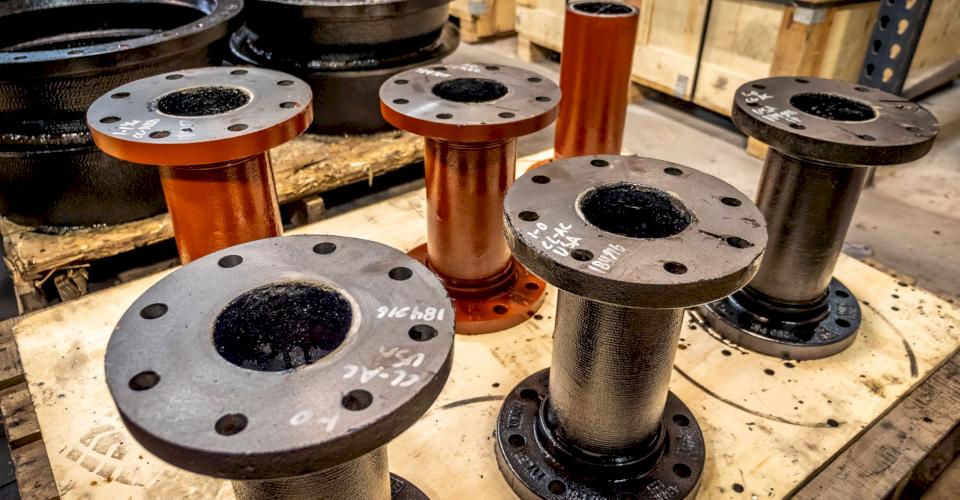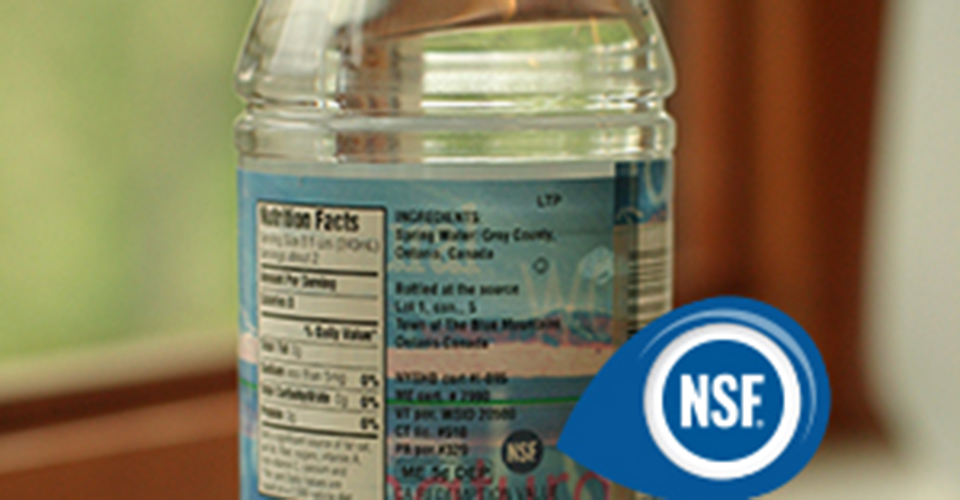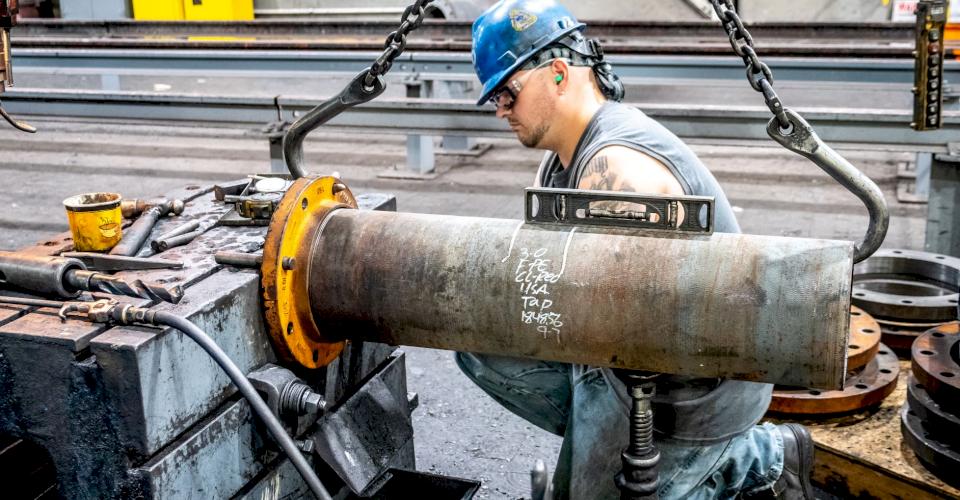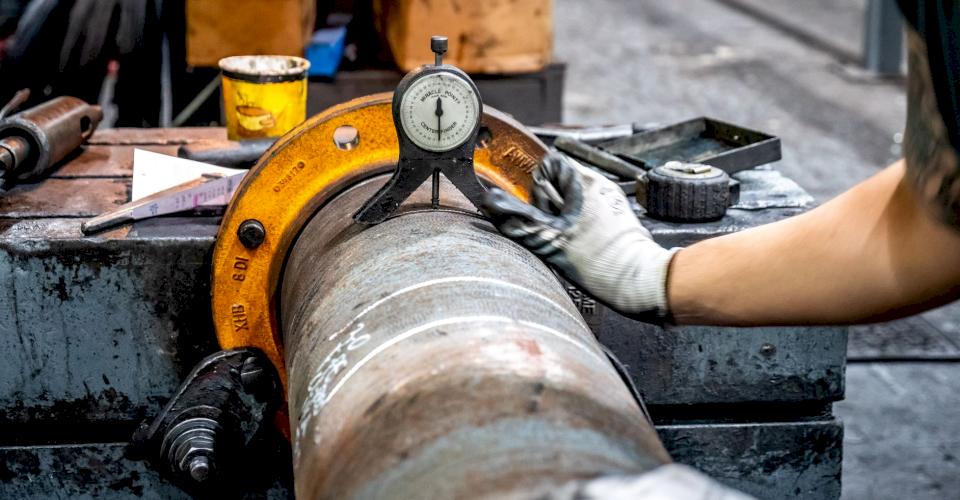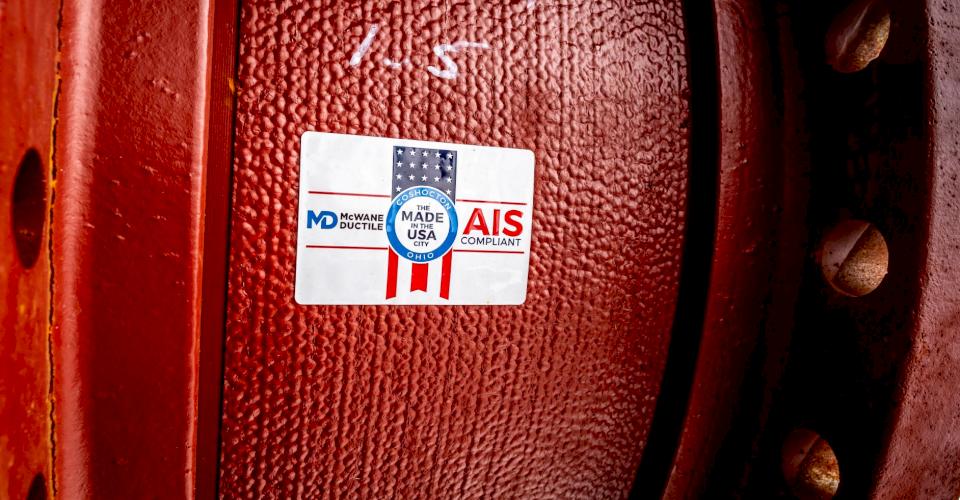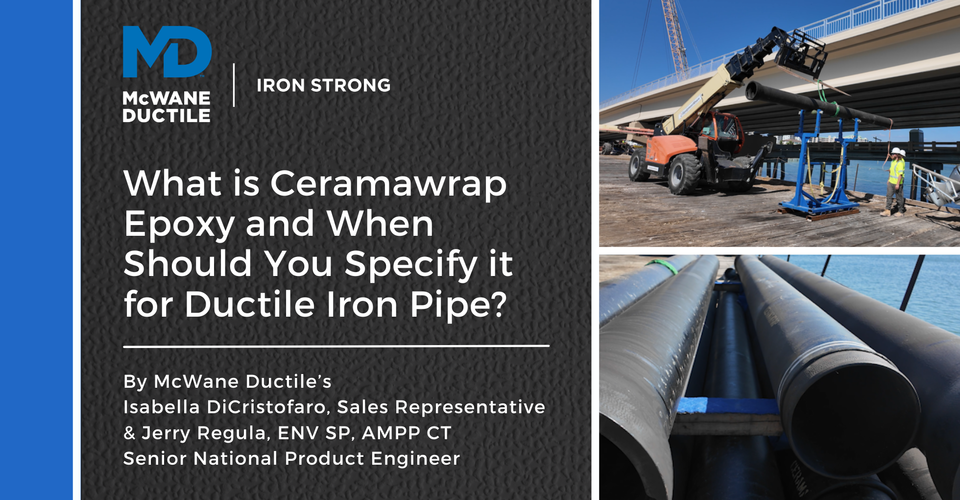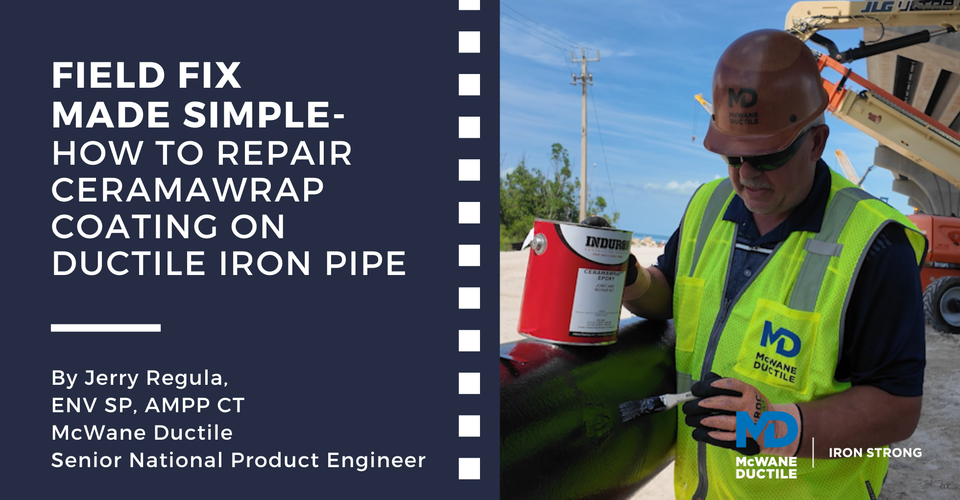Got Certification? Does your fabricated Ductile iron pipe meet the current ANSI/AWWA C115 / A21.15-11 Standard for fabricated pipe?
Products intended for contact with potable water shall be certified to the requirements of NSF/ANSI 61. The certification shall be accomplished by a certification organization accredited by the American National Standards Institute (ANSI) AWWA Standard, ANSI/AWWA C115/A21.15-11 Section 4.1.2. This standard includes water service pipe, water distribution lines, water treatment plants (WTP), and commercial and industrial services lines.
It’s The Law!
Founded in 1944, the National Sanitation Foundation (NSF), created standards for the sanitation industry. In 1990, NSF changed its name to NSF International to better serve the water and commercial industries.
Currently, when a valve, fitting, or fabricated piece of pipe is NSF certified, it meets or exceeds particular standards enforced by state and federal laws. Not all NSF standards pertain to food or water. There are numerous standards for a variety of media. Many relate to commercial, municipal, and residential plumbing. Others are for pharmaceutical safety, etc.
The point is, if the valve, fittings, or fabricated piece of pipe you want to purchase and use in your application does not carry an NSF-61 certification and the application requires one (ANSI/ AWWA C115), you should contact your project engineer or municipality before installation. It's all about safety and protecting yourself from possible liability and legal consequences.
An inspection that fails to identify NSF-61 certified material in locations where they should be placed could be very costly, even devastating to a business or municipality, depending on the material in question and other line components that need to be immediately replaced (Source: Valveman blog February 14, 2017).
A Brief History of The Standard
AWWA standards for pipe and fittings have been in place since the early 1900s. Flange fittings are described in ANSI/AWWA C110/A21.10 for gray-Iron Fittings. The flange pipe used with these fittings did not have a specification standard and were purchased for many years in accordance with manufacturers', fabricators', and local water utility generally accepted standards. An ANSI/AWWA standard was needed for flange pipe, as the industry expectations grew.
Consequently, in 1974 the first AWWA standard for fabricated pipe was proposed to the governing AWWA A21 committee, and in 1975 it was adopted into the specification. Revisions to the ANSI/AWWA C115 A21.15 specification were approved by the AWWA Board of Directors in 1983, 1988, 1994, 1999,2005, and the seventh edition in 2011 (Source: AWWA Standard, ANSI/AWWA C115/A21.15-11).
The Scope of the Standard
Ductile iron fabricated pipe and flange fittings have been used in water distribution and wastewater systems for decades.
NSF has been certifying fabricated pipe and fittings for use in drinking water distribution systems for years, and it’s essential to understand the scope of these standards to choose products that meet your state and local regulations.
- NSF/ANSI/CAN 61 – Covers and certifies product for drinking water components – Health Effects.
- ANSI/AWWA C115 – Flange Ductile Iron Pipe
- ANSI/AWWA C606 – Grooved and Shouldered Joints
The Standards Are Quite Clear
If you manufacture, sell, or distribute water treatment material or water distribution products in North America, your products are required to comply with the standard for NSF-61 Drinking Water System Components Requirements. The standard is the law for most governmental agencies that regulate, produce, and manage drinking water resources. The standard sets health effect criteria for many water system components, including:
- Protective barrier materials (cements, paints, and coatings)
- Joining and sealing materials (gaskets, adhesives, and lubricants)
- Mechanical devices (water meters, valves, and backflow presenters)
- Pipe and related product (pipe and fittings)
- Plumbing devices (faucets, fountains)
- Process media (filter media, ion exchange resins)
- Non-metallic potable water materials
Certified Components Versus Finished/End - Product?
State drinking water legislation requires equipment and product in contact with drinking water, from source to tap, to meet health and safety standards, including certification to NSF/ANSI/CAN 61. The certification of a finished product incorporates the evaluation and testing of all the included components, but the end product certification does not extend to the components themselves.
In other words, component flanges are not certified individually to make up the finished product. The finished product is certified to the standard complete, and individual components do not achieve the certification standard. Components seeking certification must undergo the same rigorous technical review and production facility audit and testing as the complete certified finished product connecting to the water supply (D. Nance NSF Municipal Water Maters 2019).
Fabricated ductile iron pipe must be certified to the NSF/ANSI/CAN 61 standard as a complete finished product. The fabrication and manufacturing process, along with the manufacturing facility, must go through a rigorous certification audit, complete with internal audit checklists and process verification.
Once the facility earns the NSF-61 certification, follow up audits are scheduled annually to maintain the manufacturing facility's certification. The certification process is not easy, but the benefits to the organization and industry far outweigh the rigor of the certification. The process is designed to produce quality standards that are consistent in the market. Water utilities across the country can count on quality production and attention to detail for every piece of fabricated pipe produced in the facility.
Staying In The Know: Updates to NSF/ANSI 61
The standard that has been around for over 30 years is going through a significant change and an exciting one!
NSF/ANSI 61: Drinking Water System Components – Health Effects
This standard is now accredited by the Standards Council of Canada (SCC) and are recognized as national standards in Canada (in addition to the United States). So, what does that mean?
While the standards were only recently designated as National Standards of Canada, the previously published versions have been widely recognized in Canada for years. The official names of the standards will change to reflect the formal Canadian acceptance: NSF/ANSI/CAN 61. Click here to view the Municipal Water Matters Newsletter 2019.
Look for the NSF-61 Sticker
McWane Ductile provides the highest quality control standards for producing fabricated pipe, including project tag or mark #s for identification and assembly. The finished product will display the pipe diameter, and pipe length visibly marked and verified prior to shipment.
McWane Ductile manufactures fabricated pipe and wall pipe that meet and exceed ANSI/AWWA C115/A21.15-11 latest revision standards and can certify the material meets all AIS and USA manufacturing requirements. The final product will proudly display the NSF-61 certification sticker for fabricated pipe and show the pipe and flanges that were proudly made in the USA.
A Trusted Source and Industry Guidance - NAPF.com
The National Association of Pipe Fabricators (NAPF.com) includes producer members, distributors, and manufacture member partners from across the country within the waterworks and sewer industry. The organization's goal is to support, promote, and educate members within the Ductile iron pipe fabrication industry. The organization provides a secure connection to essential issues impacting Ductile iron pipe fabrication, treatment plant Ductile iron pipe application, funding, and legislation trends impacting the business. Their focus is to proactively inform, educate, support, and promote the industry while understanding AWWA, and United States Environmental Protection Agency (EPA) guidelines.
NAPF has published established quality and industry standards adopted by engineers and fabricators across the country. These standards include:
- Quality Plus! TM Certification Program– Independent third-party inspection programs sponsored by NSF International (NAPF members receive an additional discounted value of this program – ask for details).
- Industry Guidelines– Surface Preparation Standards for Ductile Iron Pipe and fittings in exposed locations receiving special external coating and/or special internal linings. NAPF Section 500 – 03 Surface Preparation Standards.
- NAPF Antitrust Guidelines– Antitrust Standards for industry members.
McWane is a proud member of The National Association of Pipe Fabricators.
For additional information about McWane Ductile fabricated pipe and the manufacturing process, or to schedule a plant tour, contact your local sales representative, or For more information on the flange fabrication process, see this blog and video by my colleague, Matt Drummond, McWane Ductile Sales Representative.
Need Assistance with Your Waterworks Project?
We have team members who’ve managed small and large water utility systems, served in engineering consulting firms, and bring decades of experience in solving field issues involving pipeline construction and operation. From design to submittal, to installation, we strive to provide education and assistance to water professionals throughout the water and wastewater industry.
Check Out All Our Digital Offerings


